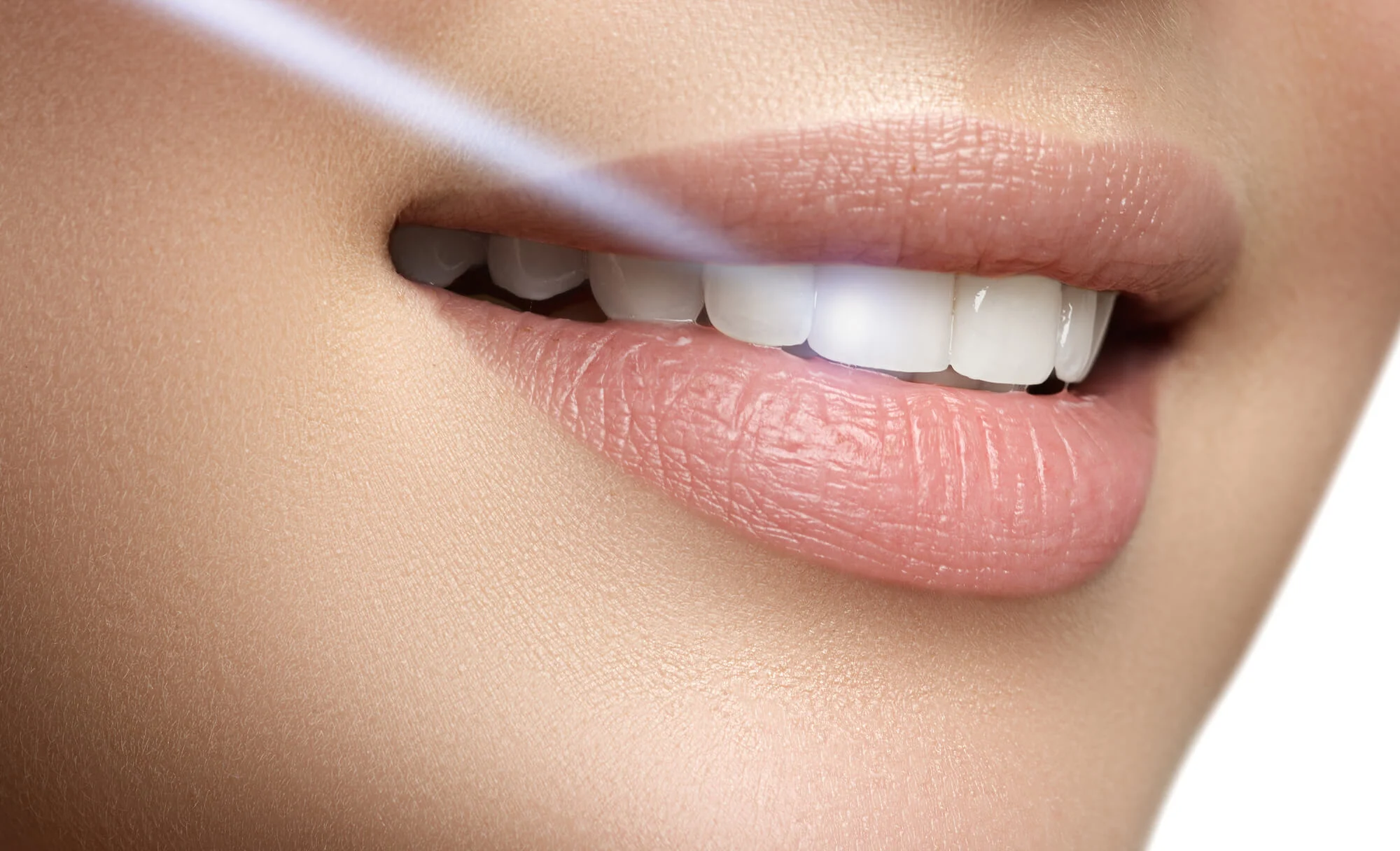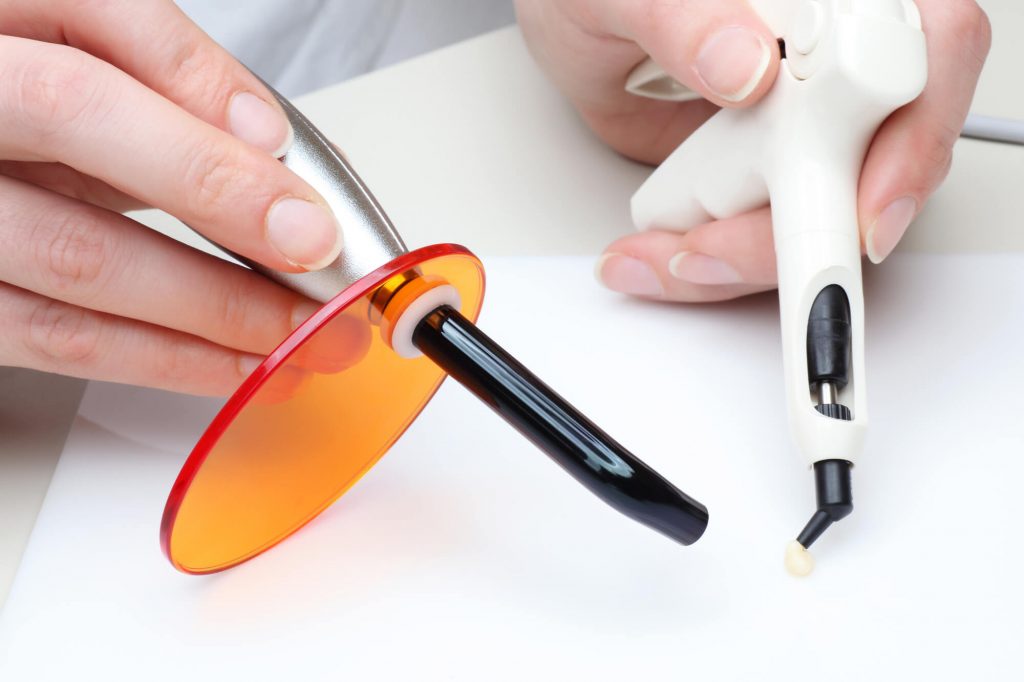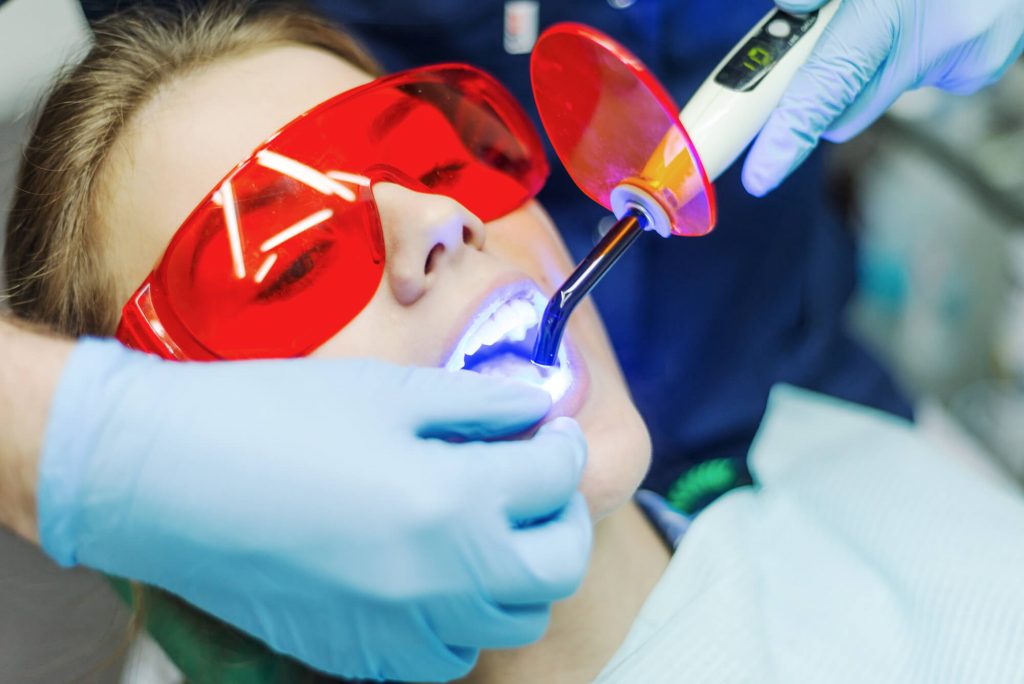One of the most cutting-edge technological advances in the world of oral health involves the use of dental lasers. Laser dental service in Las Vegas continues to transform how dental professionals care for patients. You probably have a few questions if you don’t know much about laser dentistry and how it works. We’re here to answer the most common questions about laser dentistry to help you understand what it is, how it works, and what benefits it can offer. In this article, we will address some of the most common laser dentistry FAQs to help you better understand this innovative technology.
Frequently Asked Questions About Dental Lasers – Answered!
What Exactly Is Laser Dentistry?
Laser dentistry is a branch of dentistry that uses lasers to address several oral health conditions that patients have. Laser dentistry work involves the application of focused light energy to perform various dental procedures with precision and minimal damage to surrounding tissues. Dentists who use this method must train to use specialized laser tools instead of shots and drills. Moreover, they use lasers to detect cavities, fix gum problems, eliminate decay from a tooth, perform oral surgery, treat snoring, and remove fibroma.
Instead of cutting tissue, using shots for anesthesia, using drills to cut away the tooth, and using bulky machines to prevent snoring, dentists can use lasers to address oral health issues. In addition, laser dentistry offers more benefits than traditional methods. It is an excellent alternative for patients who want a quicker recovery and a better experience at the dentist’s office. To view more about the dos and don’ts of recovering from laser gum surgery you can view more here.
What Is a Dental Laser?
LASER is an acronym for Light Amplification by Stimulated Emission of Radiation. Moreover, a laser is a device that releases light energy through an optical amplification process based on the stimulated emission of electromagnetic radiation. In simple terms, lasers emit incredibly narrow beams of light that are useful in multiple instruments and technologies.
The use of laser technology in dentistry allows for precise and efficient treatments, making it a valuable tool in modern dental practices.
A dental laser refers to a device that produces a single wavelength of light energy directed at the patient’s tooth, gum, or soft tissue to whiten teeth, eliminate tooth decay, and treat periodontal disease and soft tissue disorders with accuracy and precision. The dentist adjusts the light’s wavelength and intensity based on the desired result and whether the dental procedure is on hard or soft tissue.
What Is the History of Laser Dentistry?
In 1960, an American engineer physicist named Theodore Maiman successfully fired the first laser at the Hughes Research Laboratory in California by shining a high-power flash lamp on a silver-coated ruby rod. His discovery later paved the way for the subsequent development of other types of lasers, including dental lasers.
Moreover, researchers first explored laser dentistry shortly after Maiman developed the first ruby laser until the first medical-grade laser was introduced in 1963. The first dental laser application used ruby for the laser medium. The device produced irregular pulses as it effectively vaporized tooth enamel.
Despite initial safety concerns, advancements in technology have made laser dentistry safe and effective when performed by qualified professionals.
However, concerns about the technology’s safety caused dental researchers to move from Ruby-based lasers to CO2 lasers and Er:YAG lasers. As a result, the world has seen an explosion of research studies in dental laser application over the last few decades.
What Are the Benefits of Laser Dentistry?
It’s Minimally Invasive
Dental lasers are built to work without pressure, continuous vibration, and heat, allowing patients to feel lower pressure while sealing off nerves during use. For these reasons, they eliminate the need for dental drills that cause discomfort and may only require little or no anesthesia. As a result, patients experience less anxiety and can relax and feel comfortable during their procedure. Laser surgery offers a gentle and precise alternative to traditional methods, reducing risks and improving patient outcomes.
It Minimizes the Risk of Bleeding and Infection
Patients with gum disease are susceptible to gum bleeding and bone loss due to harmful bacteria in the teeth and gum pockets. Unlike traditional dental instruments, the dental laser’s high-energy light beam sterilizes the affected area and seals blood vessels to encourage immediate blood clotting. As a result, laser dentistry reduces the patient’s risk of bleeding, bacterial infection, and other complications.
It Protects the Mouth from Trauma
Laser treatments are known for their precise nature. Unlike other dental instruments such as handheld and high-speed drills that may cause hairline cracks on teeth and damage to soft oral tissue, dental lasers preserve the mouth’s healthy areas during procedures, ultimately reducing the need for dental restoration.
It Promotes a Shorter Healing Time and Quicker Recovery
Traditional methods involving handheld dental tools can potentially cause injury to the teeth and the oral cavity’s surrounding tissue and prolong recovery times. Dental lasers result in minimal trauma to treated areas because they exclusively target the affected soft or hard tissues as the lasers reshape or remove them. Consequently, laser dentistry promotes reduced and pain-free recovery times.
It’s Optimizable for Patients
Since highly trained dental professionals can adjust the laser beam’s wavelength and power level depending on the type of treatment, they have maximum control over the procedure. Furthermore, this control allows them to complete the process while serving the patient’s specific needs.
Safety and Risks of Laser Dentistry
Laser dentistry is widely regarded as a safe and effective dental technology. However, like any medical treatment, it comes with some risks and potential complications. These are generally minor and temporary, but it’s crucial to discuss them with your dentist before undergoing any dental procedure.
Some potential risks and complications of laser dentistry include:
- Tooth Sensitivity: This is usually temporary and can be managed with desensitizing toothpaste or varnish.
- Gum Irritation: Rare and typically resolves on its own within a few days.
- Infection: As with any invasive dental procedure, there is a small risk of infection.
- Damage to Surrounding Tissues: This is rare and usually occurs when the laser is not used correctly.
To minimize these risks, it’s essential to choose a qualified and experienced dentist who has received proper training in laser dentistry. By doing so, you can ensure that your dental procedure is both safe and effective.
Common Procedures and Applications of Dental Lasers
Dental lasers are incredibly versatile instruments that can be used for a wide range of dental procedures. Here are some common applications:
- Soft Tissue Procedures: Dental lasers can remove excess gum tissue, treat gum disease, and perform biopsies with precision.
- Hard Tissue Procedures: Lasers can remove decay, prepare teeth for fillings, and even perform root canals.
- Teeth Whitening Treatments: Dental lasers can activate whitening agents, achieving faster and more effective results.
- Dental Surgery: Lasers are used in surgical procedures such as crown lengthening, gum grafting, and implant placement.
Additionally, dental lasers can treat various dental conditions, including:
- Cold sores and canker sores
- Gum disease
- Tooth decay
- Cracked teeth
- Dental implants
The precision and effectiveness of dental lasers make them a very useful dental instrument in modern dentistry.
Dentistry Cost and Insurance
The cost of laser dentistry varies depending on the type of procedure, the location, and the dentist. Generally, laser dentistry can be more expensive than traditional dental procedures. However, the benefits, such as reduced pain and quicker recovery times, often make it a worthwhile investment for many patients.
Insurance coverage for laser dentistry varies depending on the provider and the specific policy. Some insurance plans may cover laser dentistry for certain procedures, while others may not. It’s essential to check with your insurance provider before undergoing treatment to determine what is covered. Understanding your insurance policy can help you make an informed decision about your dental care.
Special Considerations for Laser Dentistry
When considering laser dentistry, there are a few special considerations to keep in mind:
- Pregnancy: Laser dentistry is generally safe during pregnancy, but it’s essential to discuss any concerns with your dentist to ensure the best care for you and your baby.
- Children: Laser dentistry can be used on children, but it’s crucial to choose a pediatric dentist experienced in laser treatments to ensure a comfortable and effective procedure.
- Dental Implants: Laser dentistry can be used to place dental implants, but selecting a dentist with specific experience in this area is vital for optimal results.
- Gum Disease: Laser treatments are effective for gum disease, but again, choosing a dentist with expertise in this procedure is essential for the best outcomes.
By considering these factors, you can ensure that laser dentistry is a suitable and effective option for your specific needs.
What to Expect from Laser Dentistry
If you’re considering laser dentistry, here’s what you can expect:
- Consultation: Your dentist will discuss your treatment options and determine if laser dentistry is right for you.
- Examination: A thorough examination of your teeth and gums will help determine the best course of treatment.
- Treatment Plan: Your dentist will outline the procedures to be performed and the expected outcomes.
- Comfortable Experience: Thanks to local anesthesia and sedation dentistry, your treatment will be comfortable and relaxing.
- Faster Recovery: Compared to traditional dental procedures, laser dentistry offers a quicker recovery time.
- Follow-Up: A follow-up appointment will check on the progress of your treatment and make any necessary adjustments.
Overall, laser dentistry is a safe and effective dental technology that can treat a wide range of dental conditions. By choosing a qualified and experienced dentist, you can ensure a comfortable and successful treatment experience.
Considering Laser Dental Service in Las Vegas?
At Dee for Dentist, we offer safe and comfortable dentistry for all patients. If you’re ready to experience top-quality dental care, contact our office today or call (702) 870-3818 or (702) 586-7800 to make an appointment.



